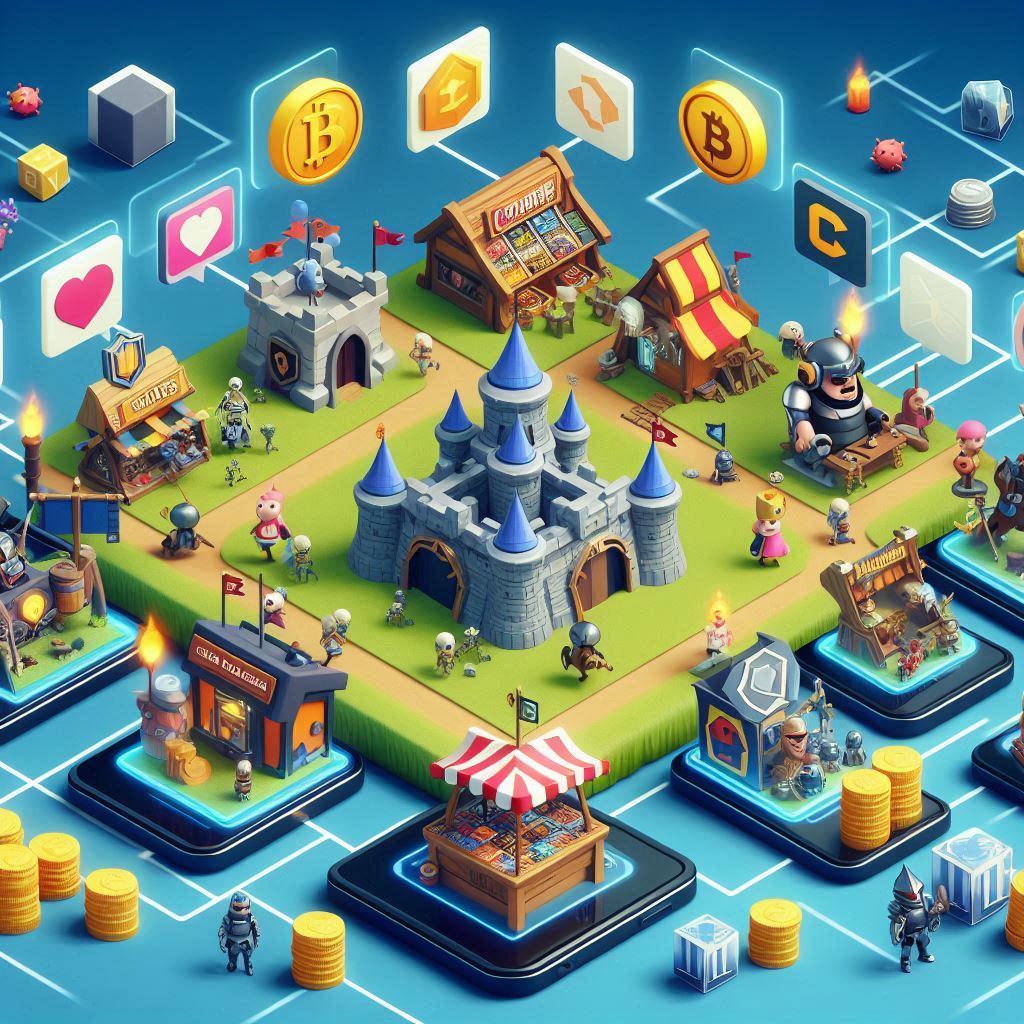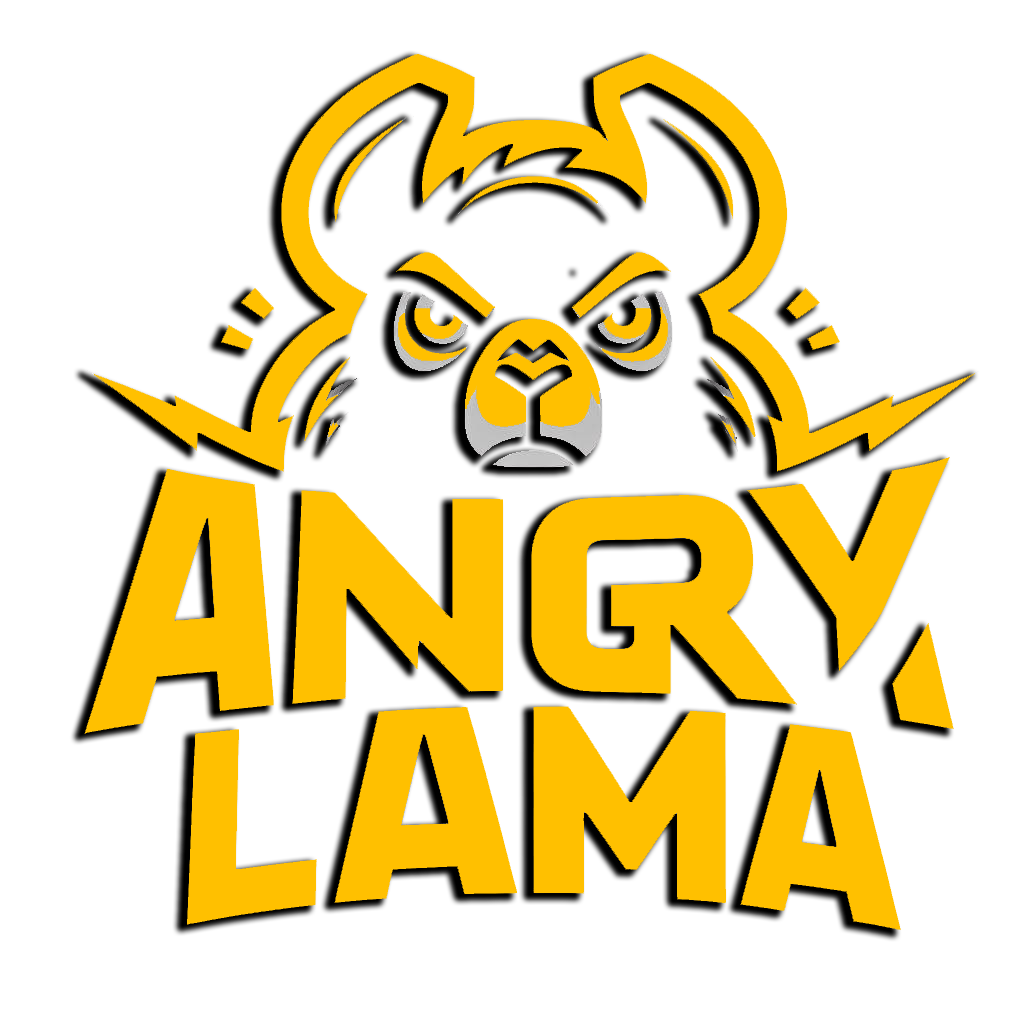gaming
Introduction to Blockchain-Based Gaming Marketplaces
Blockchain Technology is transforming the gaming industry by enabling the creation of decentralized gaming marketplaces. These platforms allow players to buy, sell, and trade in-game assets securely and transparently. By leveraging blockchain’s inherent advantages, such as immutability, decentralization, and security, blockchain-based gaming marketplaces are gaining popularity among gamers and developers alike. This guide explores how these marketplaces work, their benefits, and their potential to reshape the gaming economy.
How Blockchain Enhances Gaming Marketplaces
Blockchain technology provides a decentralized ledger that records all transactions in a transparent and immutable manner. In gaming marketplaces, this means that every purchase, sale, or trade of in-game assets is recorded on the blockchain, ensuring that ownership and provenance are indisputable. This transparency fosters trust among players, reducing the risk of fraud and enabling a more open and fair trading environment.
Non-Fungible Tokens (NFTs) in Gaming
Non-fungible tokens (NFTs) are a key component of blockchain-based gaming marketplaces. NFTs represent unique digital assets, such as characters, skins, or weapons, that players can own and trade. Unlike traditional in-game items, NFTs are not confined to a single game and can be traded across different platforms. This interoperability increases the value of in-game assets, as players can potentially use them in multiple games or sell them on various marketplaces.
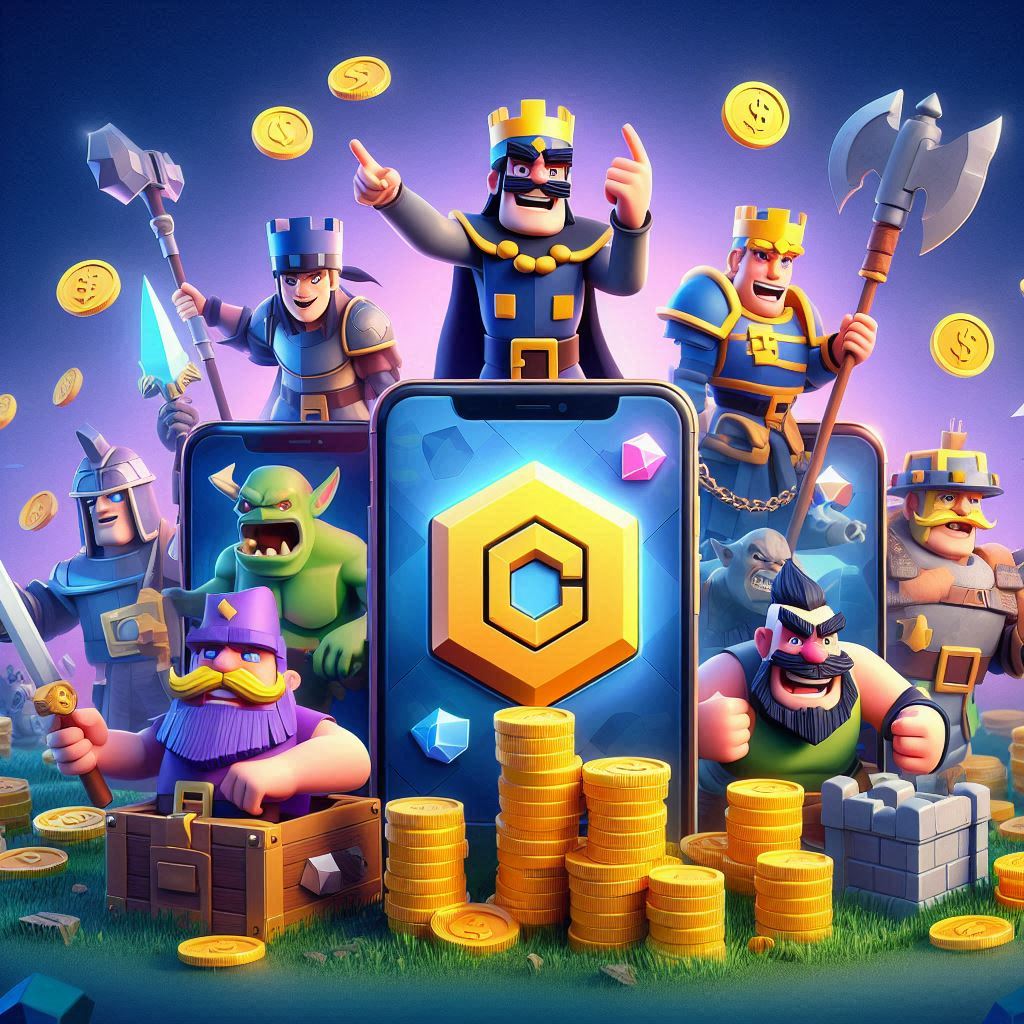
Decentralization and Ownership
One of the primary advantages of blockchain-based gaming marketplaces is the decentralization of asset ownership. In traditional gaming environments, in-game assets are often controlled by the game developer, meaning players do not truly own the items they purchase. Blockchain changes this dynamic by giving players true ownership of their assets, which they can trade or sell independently of the game developer. This shift empowers players and adds a new layer of value to in-game items.
Security and Fraud Prevention
Blockchain’s security features make it an ideal solution for gaming marketplaces, where fraud and hacking are significant concerns. Each transaction is encrypted and recorded on the blockchain, making it virtually impossible to alter or tamper with the transaction history. This level of security ensures that players can trade assets confidently, knowing that their transactions are protected from fraud.
The Role of Smart Contracts
Smart contracts are self-executing contracts with the terms of the agreement directly written into code. In blockchain-based gaming marketplaces, smart contracts automate the process of buying, selling, and trading assets, ensuring that transactions are executed accurately and fairly. This automation reduces the need for intermediaries, lowers transaction costs, and speeds up the trading process, providing a seamless experience for users.
Interoperability Across Games and Platforms
Blockchain-based gaming marketplaces enable interoperability, allowing in-game assets to be used across multiple games or platforms. This is a significant departure from traditional gaming, where assets are typically confined to a single game. Interoperability not only enhances the value of digital assets but also encourages collaboration between game developers, leading to a more interconnected gaming ecosystem.
Earning Potential for Players
Blockchain-based gaming marketplaces provide players with new opportunities to earn money through gaming. Players can buy, sell, and trade NFTs for profit, potentially making gaming a lucrative activity. Some players even earn a living by participating in these marketplaces, either by trading valuable assets or by developing and selling in-game items.
This shift from playing games for fun to playing games for profit is a major trend in the gaming industry.
Developers’ Perspective: New Revenue Streams
For game developers, blockchain-based gaming marketplaces offer new revenue streams. Developers can create and sell NFTs, earning a percentage of each sale or trade. Additionally, they can design games that integrate with existing marketplaces, attracting a broader audience and increasing player engagement. The ability to tap into these decentralized economies is driving innovation in game design and development.
Community-Driven Economies
Blockchain-based gaming marketplaces often foster community-driven economies, where players have a say in how the marketplace operates. Decentralized Autonomous Organizations (DAOs) are sometimes used to govern these marketplaces, giving players voting rights on key decisions. This community involvement can lead to a more vibrant and engaged user base, as players feel a sense of ownership and responsibility for the marketplace’s success.
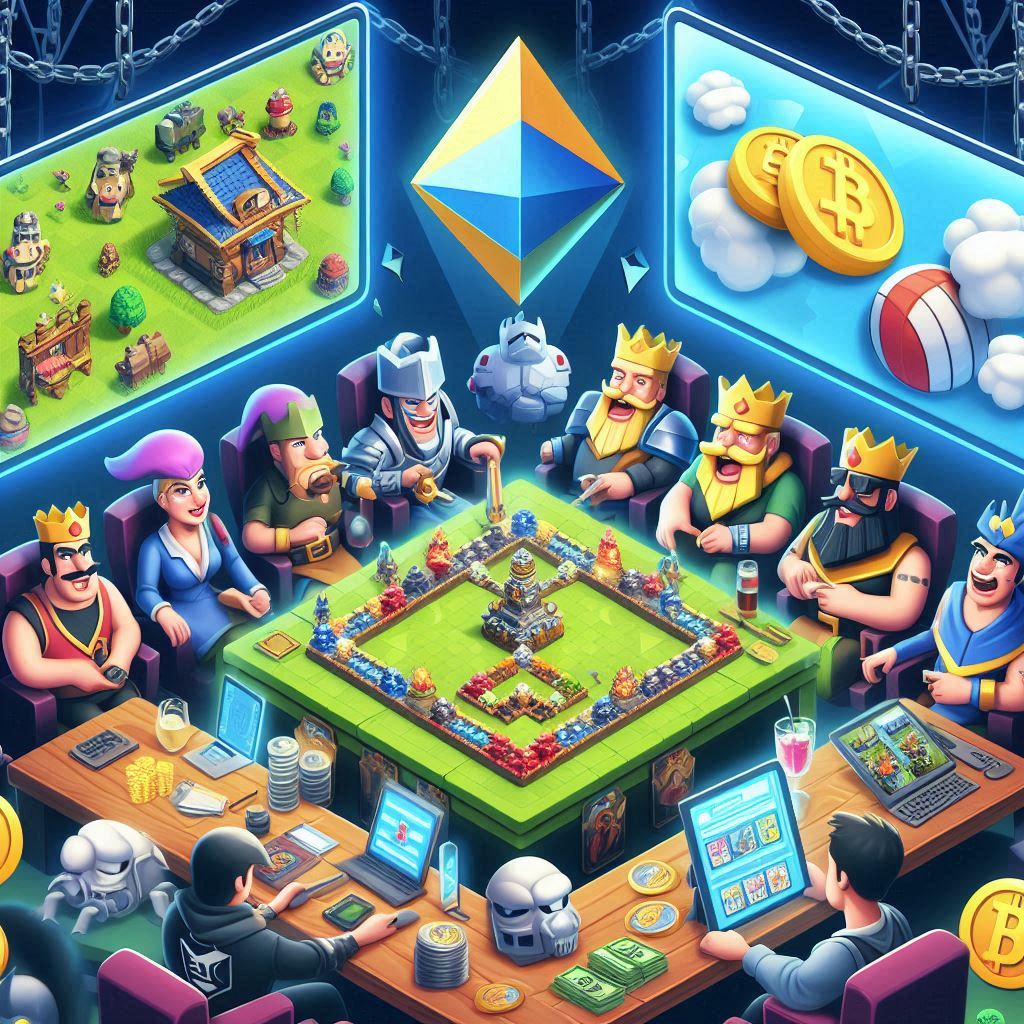
Challenges and Limitations
Despite their many advantages, blockchain-based gaming marketplaces face several challenges. These include scalability issues, high transaction fees, and the need for widespread adoption of blockchain technology. Additionally, the environmental impact of blockchain, particularly proof-of-work mechanisms, is a concern that the industry must address. Overcoming these challenges will be crucial for the continued growth and success of blockchain gaming marketplaces.
The Environmental Impact of Blockchain in Gaming
The environmental impact of blockchain, particularly in proof-of-work systems, has been a significant topic of discussion. Gaming marketplaces that rely on energy-intensive blockchain networks may face criticism for their carbon footprint. However, many developers are exploring more sustainable alternatives, such as proof-of-stake or layer-2 solutions, to mitigate these environmental concerns while still harnessing the benefits of blockchain technology.
Legal and Regulatory Considerations
The legal and regulatory landscape for blockchain-based gaming marketplaces is still evolving. Issues such as digital asset ownership, taxation, and consumer protection are complex and vary by jurisdiction. Developers and players must navigate these legal challenges carefully to ensure compliance and avoid potential pitfalls. As the industry grows, clearer regulations and guidelines are likely to emerge, providing more stability and security for all participants.
The Future of Blockchain-Based Gaming Marketplaces
The future of blockchain-based gaming marketplaces looks promising, with ongoing advancements in technology and increasing interest from both players and developers. As blockchain technology becomes more mainstream, we can expect to see more innovative gaming experiences that integrate with decentralized marketplaces. These platforms have the potential to revolutionize the gaming industry, creating new opportunities for earning, ownership, and community engagement.
Case Studies of Successful Blockchain Gaming Marketplaces
Several blockchain-based gaming marketplaces have already seen significant success. Platforms like OpenSea and Axie Infinity have demonstrated the potential of blockchain in gaming, with millions of dollars in transactions and thriving user communities. These case studies provide valuable insights into what makes a successful marketplace, from user-friendly interfaces to robust security measures and active community management.
Conclusion: Embracing the Blockchain Revolution in Gaming
Blockchain-based gaming marketplaces represent a revolutionary shift in the gaming industry, offering players true ownership of their digital assets and new ways to earn money through gaming. While challenges remain, the potential benefits of these platforms are immense, from enhanced security and transparency to the creation of vibrant, community-driven economies.
As blockchain technology continues to evolve, its impact on the gaming world will only grow, making it an exciting space to watch and participate in.
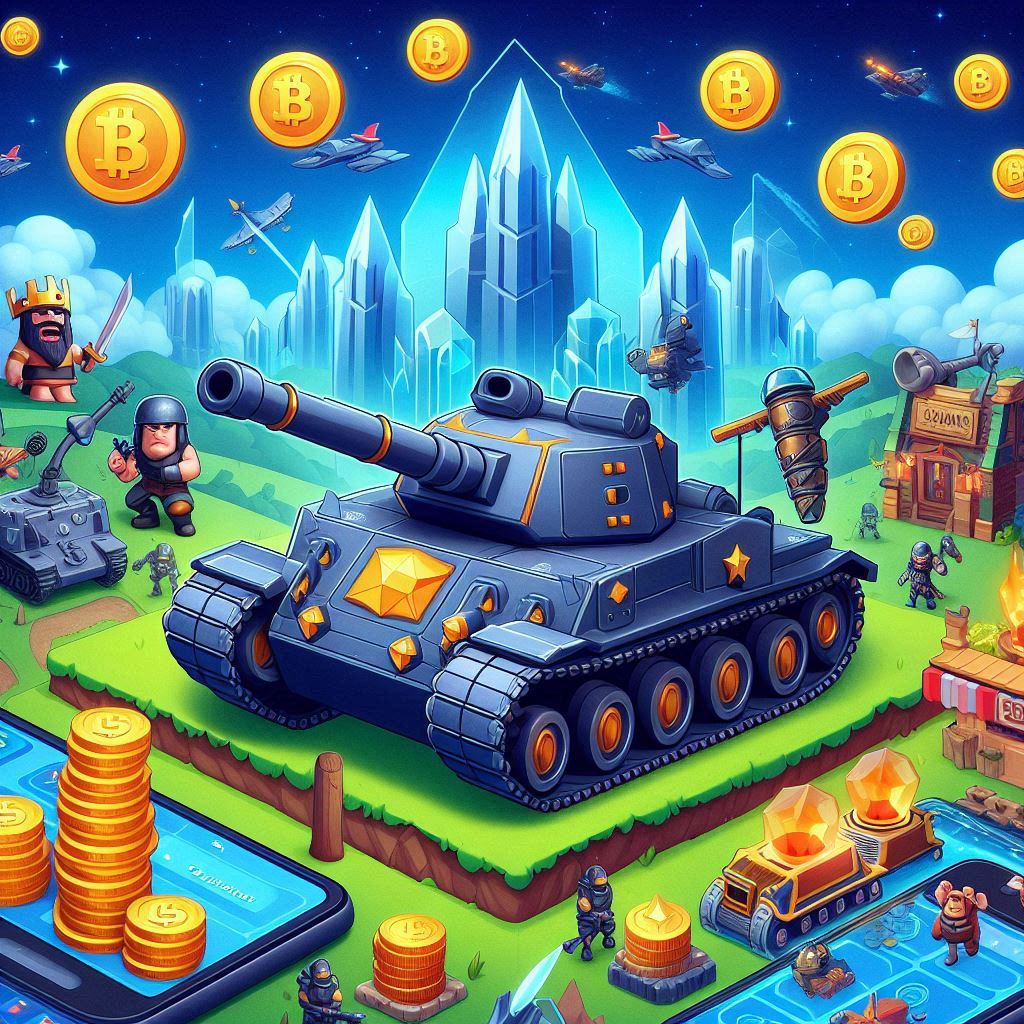
Our game development Team has developed a game based on blockchain technology. This is a turn-based game where players can Earn Money by competing with each other in addition to having fun. You can download this online 3D game TanKash from Google Play Store and subscribe to our YouTube channel for more information.

